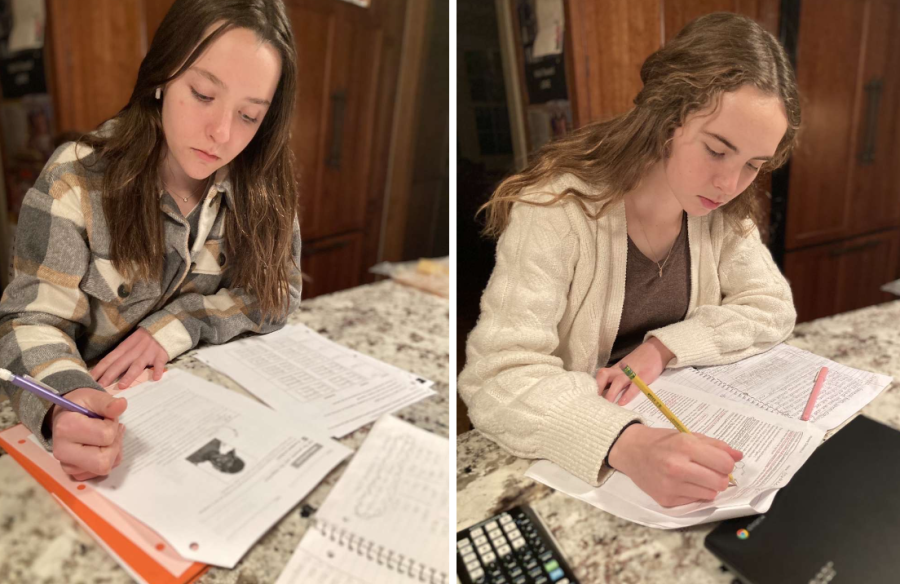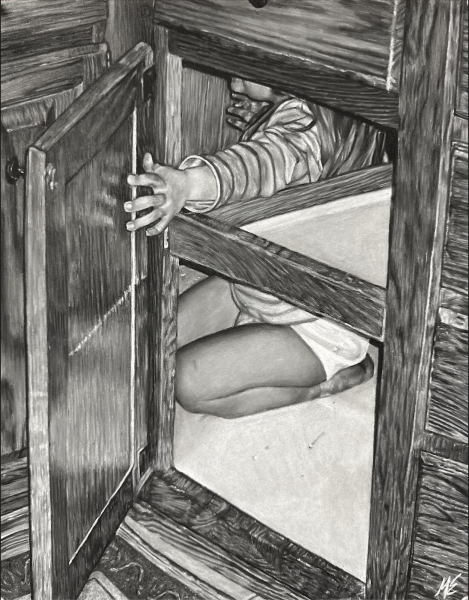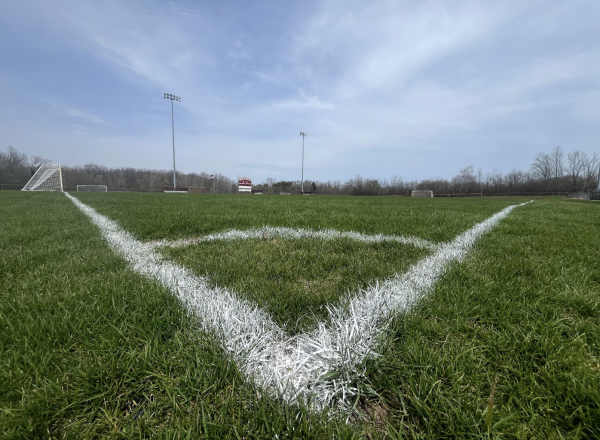Academic Pressure: The push to be perfect
Hannah Martyn (left), Grace Martyn (right), sophomores, complete homework.
Students compete for academic validation in a community that promotes the foundation of success and quality education. However, when this so-called ‘competition’ goes too far, students are forced to choose between their well-being or academic achievement.
Academic pressure, as defined by the Pacific Teen Treatment, is the “experience in which a student is burdened by the demands of time and energy to achieve specific academic goals.”
Danielle Young, school counselor, witnesses the effects of academic pressure on a regular basis, meeting and aiding students on their journey through high school.
“I would say I think the effects could go in a spectrum of different ways, but it can increase motivation to get things done and to be engaged and reach an academic potential. On the opposite end of the spectrum, it can increase demand time while being mental health and have them feeling burdened,” Young said.
Young also highlighted the growing expectations and pretensions of perfection.
“I think in general the idea of perfection is somebody who is able to balance everything at once. From a school lens, I think with good intentions it can go overboard, with doing well in hard classes, being well rounded, advancing in areas you’re interested in and passionate about,” Young said.
The Martyn twins, Hannah and Grace, sophomores, are academically advanced, excelling in honors classes, marching band, and participating in the girls swim team.
Hannah Martyn, sophomore, also understands the detrimental effects of academic pressure.
“Sometimes there is the constant expectation to be the best and do your best no matter the cost of sleep or diet or anything. I find myself not finishing all my homework some nights due to choosing sleep over completion,” H. Martyn said.
Grace Martyn, sophomore, notices the growing workload that comes with pushing yourself.
“I find it hard to stay awake sometimes because I struggle to finish that last sentence, or read just one more page. I do realize though some teachers give the students time to complete their homework and it is much appreciated,” G. Martyn said.
Academic pressure isn’t confined to the walls of school, however.
The American Physiological Association also found that school-related stress and pressure don’t depend on class types, but schooling systems as a whole with 30 percent of students experiencing extreme stress throughout the school year.
It is not to say stress cannot be managed. Counselor Young is well acquainted with stress-relieving tactics that can ease the expenses of academic pressure.
“Capitalize personal interests, and schedule some time to reset yourself. You can always find different options for self care, but most importantly, enjoy that time to yourself everyday as a part of your routine,” Young said.
As students, the Martyns have different methods to treat oncoming school stress, but as academics prioritize schedules, it can be difficult.
“I always try to get work done as soon as possible,” Grace Martyn said. “With all classes combined, homework can take between three and four hours, so I turn to swimming and quick breaks to relieve stress that can come from that,.”
For Hannah, music is her stress reliever.
“Depending on the day, homework can take up to five hours to finish. After swim practice, I like to listen to music in order to make work less stressful,” she said.

Rita Ferrero, a current senior at Homestead High School, is eager to pursue her interests in writing as a Co-Web Editor of the Highlander Publications....





